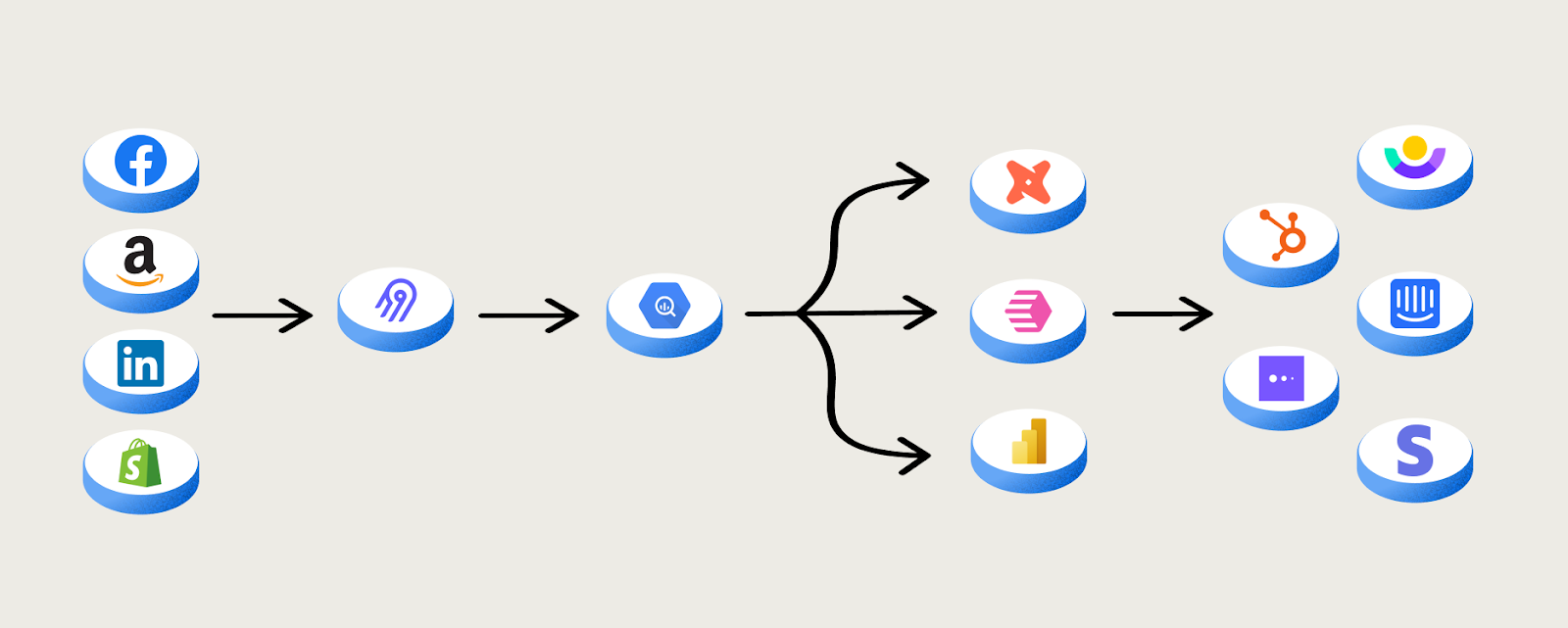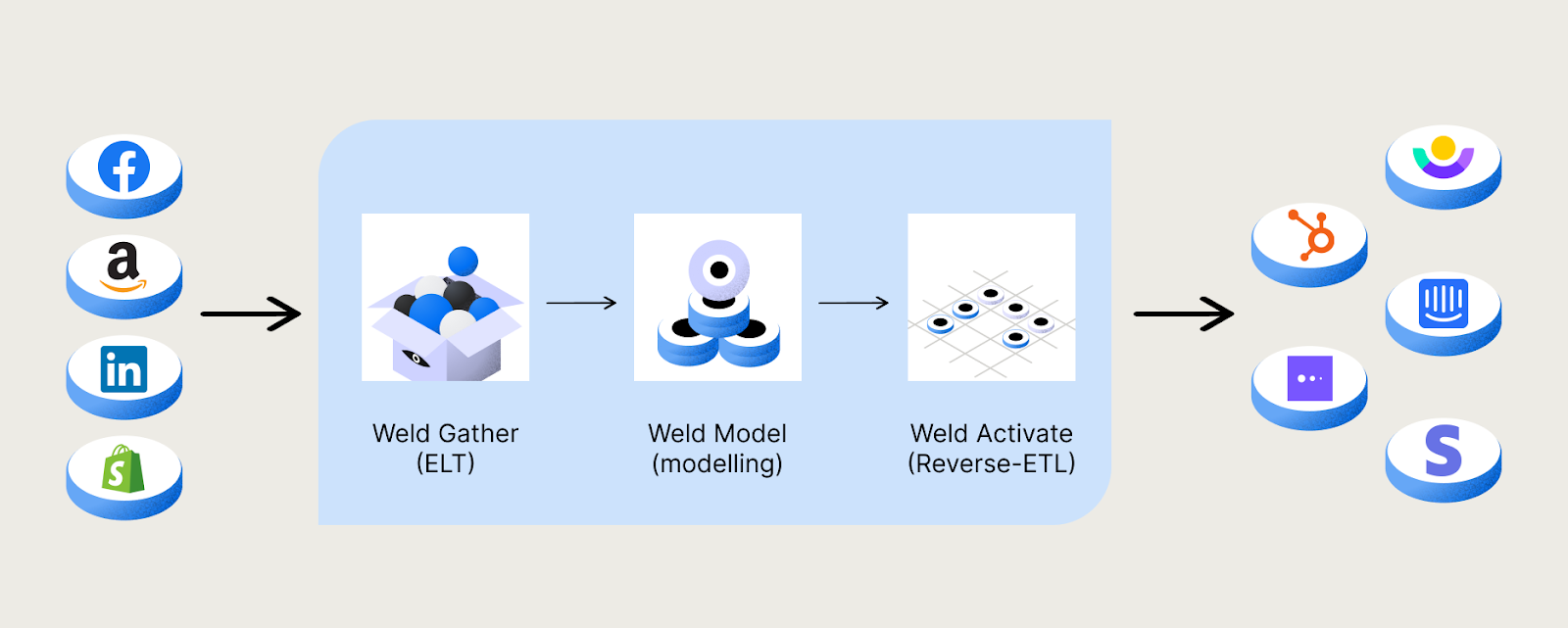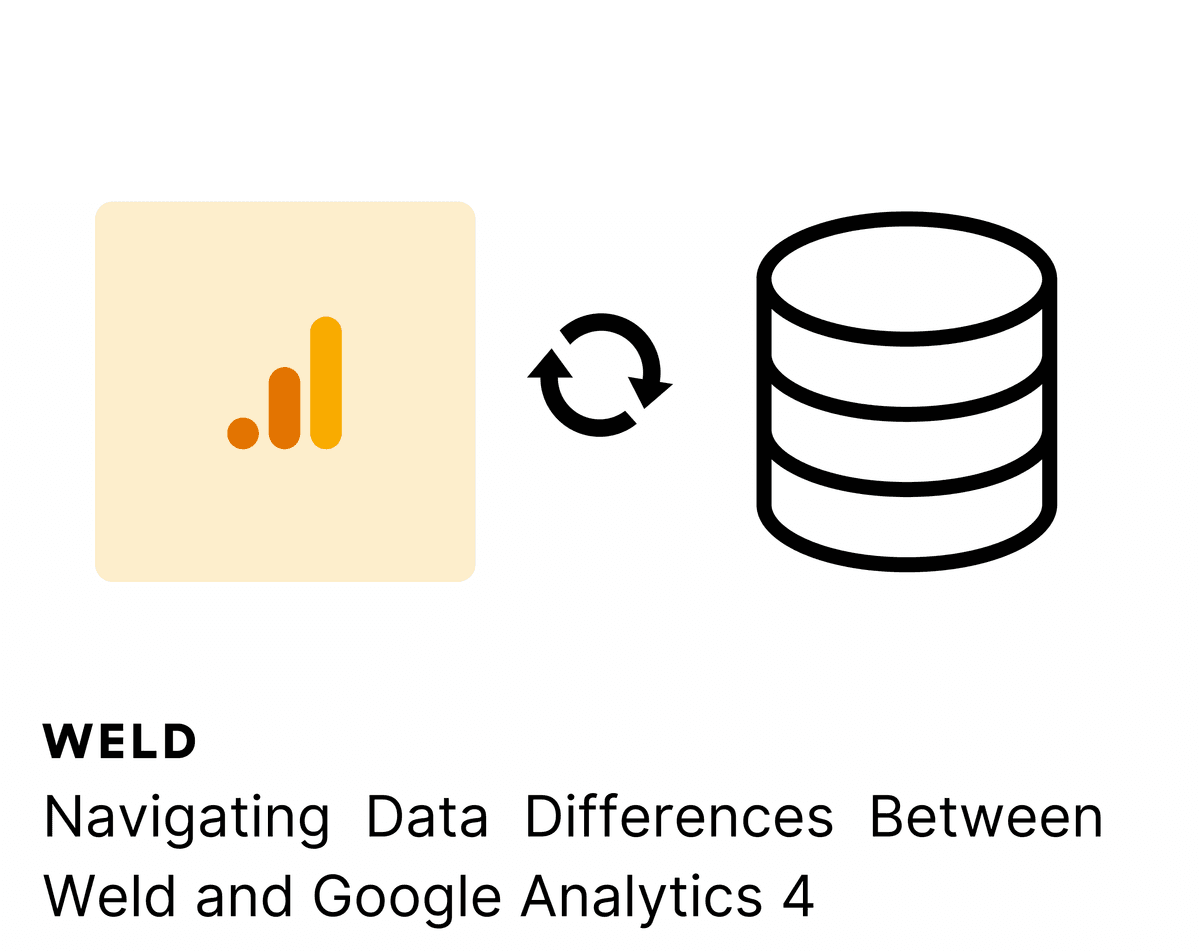
5 Reasons your ecommerce company needs to invest in a modern data stack

Leveraging customer data has long since been a cornerstone of successful ecommerce businesses. And while top-notch, deep-diving data operations were once reserved for big brands with the budgets to back them up, recent advancements in data tooling are making analytics more accessible and widely available than ever before. In short, the modern data stack is bringing data-led growth to online retail businesses big and small.
Gone are the days when Amazon and eBay had the monopoly on customer data. And with more and more ecommerce brands tapping into the power of their data, becoming data-led is no longer a nice to have but a necessity to stay ahead of the competition. Beyond that, harnessing your data leads to more efficiency in your operations, stronger marketing and advertising strategies, improved product development, and overall higher business performance.
Keep reading to learn more about the benefits of a modern data stack for ecommerce companies, and how to get up and running with your data operations.
What’s a modern data stack?
You might be wondering what we mean when we talk about the modern data stack. Essentially, a modern data stack is the technology and tooling a company has in place to collect, centralize, and make use of their customer data. In the past, this also meant having a large team or department of dedicated data engineers, analysts, and/or scientists — but things are changing.
How the modern data stack is changing
Like most business functions, there are a whole host of software that have been developed to streamline and support your data analytics operations. Most of these tools perform niche individual functions, like…
- Data integration (ELT)
- Data modelling
- Data activation (reverse-ETL)
Traditionally, a modern data stack meant patching these various tools together to run your overall data operations. The trouble is that these custom setups are costly, cumbersome, and complicated. They require a team of data engineers and analysts to set up and maintain — not to mention a big budget and the luxury of time.

But new innovations in the data tooling industry are making customer data more accessible for all businesses, and opening up the option to either build or buy a modern data stack. Companies can get up and running with their data operations in a matter of minutes, rather than months or even years.
Software like Weld brings the essential data functions together in one platform, so organizations can integrate, model, and activate their data in a single space. This is what’s in store for the future of the modern data stack. And with more brands gaining access to the wealth of information that comes from their customer data, it’s never been more important to invest in a modern data stack.

5 Reasons why ecommerce companies should invest in a modern data stack
Let’s dive into the top 5 reasons to invest in your company’s data operations sooner rather than later. A solid grasp of your customer data brings all kinds of benefits to you and your team, like…
1. Really (really) understanding your customer base
Customer-centricity is very important in ecommerce, perhaps more than any other industry. Why? Because failing to stand out from the competition is the number one blocker for growth in ecommerce, Shopify’s 2022 Future of Ecommerce report states. And the best way to find your differentiator and build your brand is getting to really know your customer base. A modern data stack helps you understand customer behaviours like…
- Buying patterns,
- Average cart size,
- Number of purchases per customer,
- Customer Acquisition Cost (CAC),
- and more.
Having customer data that’s accurate, centralized, and organized means being able to map clear customer journeys. With a solid data setup, you can bring data from tools like Shopify, Stripe, Google Ads, Facebook Ads, and more together in one place. From there, you can craft a holistic view of how your customers come to find and fall in love with your products.
2. Keeping teams aligned around core metrics
Every company wants a clear picture of performance, and accurate, reliable reporting on core business metrics. These insights can inform everything from your product development to your marketing strategy and your entire customer experience. Creating a single source of truth for your business metrics with a modern data stack fosters KPI alignment across teams, meaning every team has the same understanding of business performance.
The importance of company alignment really can’t be overstated in the ecommerce world. Whether you’re a fully online shop or have one or several brick and mortar stores, creating a cohesive customer experience across every touchpoint is essential to solidifying your brand identity. When every team has the same clear definition of success and understands their role in achieving it, they’re better able to strategize, prioritize, and execute work with those shared goals in mind.
3. Managing and forecasting stock and inventory
Keeping track of your stock (finished goods) and inventory (all materials, finished or unfinished) is essential to maintaining a sustainable ecommerce business. But between seasonal changes, economic shifts, supply chain issues, and other factors, it can be tough to know what you’ll need, in what quantities, and when.
With a modern data stack, you can not only track trends as they happen but also forecast future buying patterns to support your stock and inventory management. Knowing your data is reliable and up-to-date gives you the peace of mind that your decisions around supply and demand are based on facts, not guesstimates — or worse, gut feelings.
4. Analyzing every launch, and learning from them
When you launch a new product or collection, you want a clear picture of its success. A modern data stack helps you answer questions like:
- Are your existing customers browsing and shopping the new line?
- Are you attracting new customers?
- What are the most popular new products?
- Are your shopper demographics different from your usual customer base — and if so, how?
In addition to new products, you also want to track your web store’s performance as you iterate on the customer experience. Proper data infrastructure helps you find out:
- How is your brand new site measuring up to your old one?
- Are customers able to find the sizing, materials, manufacturing, or ingredient information you’ve added to your products?
- Is your new ‘shop the look’ feature getting clicks?
By collecting data from your website, advertising platforms, marketing tools, and more, you can get clear insights into the wins and learnings from every launch, big or small. From there, you can amplify what works, and leave the things that don’t behind.
5. Optimizing advertising and marketing budgets
The cost of digital advertising has been on the rise in the last few years, making cost effective, creative marketing and brand building all the more important. And as ecommerce companies brace for the economic downturn, making sure your marketing and advertising budgets are balanced is essential.
Data you can rely on fuels these efforts, helping you optimize your overall marketing and advertising strategies for success. Keeping ad spend and marketing budgets in check is a lot easier with a clear picture of your expenses, which campaigns are working, and which aren’t. With a modern data stack, you can keep track of your marketing and advertising ROI across all your tools, like:
- Instagram,
- Tik Tok,
- Snapchat,
- Pinterest,
- and more.
The modern data stack fuels successful ecommerce companies
There’s no doubt about it: the future of ecommerce is data-driven. And as solid data architecture becomes increasingly accessible and affordable, companies that fail to harness the power of their data will quickly fall behind the competition. Investing in a modern data stack helps you future-proof your ecommerce business and start making decisions based on data, rather than instinct.
Leading ecommerce brands like Son of a Tailor, Tekla Fabrics, Soundboks, Pas Normal Studios, Goodiebox, NØIE, and Roccamore grow with Weld’s data platform. Want to learn more about how Weld can power your data operations? Book a call with one of our data specialists to discover how our platform and team of data analysts can help you achieve your data goals.
Continue reading
.jpg&w=1200&q=75)
New Destination Alert: PostgreSQL
You can now effortlessly sync your data from over 150 sources directly into your PostgreSQL database. Get ready to supercharge your data management an


Navigating Data Differences Between Weld and Google Analytics 4
Navigating Data Differences Between Weld and Google Analytics 4. A look into the reasons behind the data discrepancies you might encoun

.png&w=1200&q=75)
New feature Alert: Sync History Insights Chart
Finding and sorting data sources, as well as seeing a historical overview of your syncs, is now easier than ever






